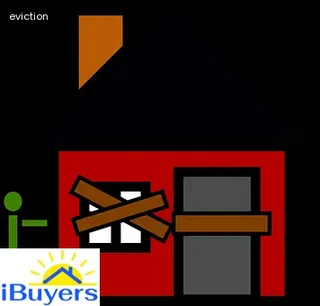Navigating North Carolina landlord-tenant law for abandoned property can be a challenging process, but understanding the laws and regulations surrounding it is an essential part of making sure the rights of both parties are respected. In North Carolina, landlords must follow certain guidelines when dealing with abandoned items left behind by tenants.
There are specific details that should be included in the lease agreement, such as how long the tenant has to reclaim their property after they move out and how much notice is required before disposing of any items. The landlord must also follow strict procedures for storing and disposing of the items, including notifying former tenants of their right to reclaim them within a certain time period.
It's important to understand these rules before taking action so that both parties have a clear understanding of their rights and responsibilities.

When dealing with abandoned property in North Carolina, it is important to understand the various landlord responsibilities and obligations related to disposing of the property. Landlords must follow state laws when it comes to handling such property, so they should familiarize themselves with the laws that apply.
Generally speaking, a landlord must make reasonable efforts to notify the tenant of his or her abandonment of the property. Depending on the type of rental agreement, legal notice may need to be given, and if the tenant fails to respond after receiving proper notice, then the landlord can begin taking steps towards disposing of the property.
If any personal belongings are left behind by the tenant, landlords must store them for a period of time before selling or discarding them. Landlords should also document all communication with tenants regarding abandoned property as well as any steps taken in disposing of said property.
Lastly, landlords may not simply keep or sell abandoned items without following proper protocol; doing so can result in serious legal consequences.
Investigating lease terms concerning abandonment is an important step for navigating North Carolina landlord-tenant law. The state lays out guidelines for when a tenant abandons a rental property, and landlords must ensure they are following the proper procedures in order to protect their rights.
In some cases, landlords may be able to keep any security deposits or other funds paid by the tenant. However, if the tenant has given notice of their intention to move before abandoning the property, then the landlord must return all funds due to them.
Additionally, the landlord must follow state laws regarding what steps are necessary to properly advertise and file paperwork when a tenant abandons property without giving notice. Understanding these regulations can be complicated and time consuming, but it is essential that landlords know their rights so they can take appropriate action should abandonment occur while they are managing a rental property.

When dealing with landlord-tenant issues, it is important to seek legal advice. Depending on the situation, landlords and tenants may be subject to various laws in North Carolina that require them to take certain actions or follow certain procedures.
It is important to understand what your rights are as a landlord or tenant and the legal obligations you have under North Carolina law. For example, if a tenant abandons their property in North Carolina, there are specific rules that must be followed regarding how the landlord must deal with the abandoned property and any rental payments still owed by the tenant.
Seeking legal advice from an experienced attorney can help ensure that landlords and tenants comply with all applicable state laws and regulations when navigating landlord-tenant issues in North Carolina.
Navigating North Carolina landlord-tenant law for abandoned property can be tricky, especially when it comes to dealing with unclaimed tenant property. It is important for landlords to understand the laws related to abandoned property and know what strategies they can use to ensure that any unclaimed items are handled in accordance with the law.
One of the primary considerations when dealing with abandoned property is determining the time period during which the tenant has a right to reclaim the items, as this varies depending on the type of item and whether or not rent was paid. Landlords should also always document their attempts to contact tenants regarding any abandoned items, as well as take photos of the items before disposing of them.
In some cases, landlords may even need to hold an auction for certain types of unclaimed items before disposing of them. Ultimately, understanding North Carolina landlord-tenant law surrounding abandoned property and being aware of all available strategies can help landlords handle these matters in a legal manner.

When it comes to navigating North Carolina landlord-tenant law for abandoned property, examining the lease agreement is a critical first step. The lease agreement should outline the tenant’s expectations for disposing of items left behind when they vacate the property.
Landlords should determine if there are specific requirements written into the lease and abide by them. If there are no provisions in the lease agreement, landlords must still follow state law guidelines when dealing with abandoned property.
North Carolina requires that landlords provide notice to their tenants before disposing of any abandoned items and allow a certain period of time for tenants to reclaim their belongings. Without following these steps, landlords can face significant legal repercussions and fines.
It is important to understand all applicable laws and regulations as well as any conditions outlined in the lease agreement before taking action regarding abandoned items on a rental property.
Navigating North Carolina landlord-tenant law for abandoned property can be complex, and understanding the proper way to close out a tenancy is essential. When attempting to end the tenancy, landlords must ensure that they are in compliance with all state regulations.
This includes providing a notice of termination to the tenant which must comply with all statutory requirements. Additionally, the landlord must follow specific procedures for dealing with any personal belongings left behind by the tenant.
These include holding onto any items for at least 30 days, notifying the tenant of their right to reclaim their belongings and disposing of any unclaimed goods according to state statutes. It is also important to note that landlords may not keep or sell any abandoned property unless specifically authorized by law.
Furthermore, it is critical that landlords provide a written statement regarding how they disposed of any abandoned possessions in order to protect themselves from liability if challenged by tenants or former tenants. Following these guidelines will help ensure that both parties are fully aware of their rights and obligations when it comes to navigating North Carolina landlord-tenant law for abandoned property.

When it comes to navigating North Carolina landlord-tenant law for abandoned property, crafting a tenant application and agreement is essential to avoid disputes later on. Landlords should ensure they have applicants fill out an application with all the necessary information, such as name, address, and contact information.
Additionally, it’s important to include a rental history check in the application process in order to confirm that the applicant has not had any past rental issues or evictions. Once an applicant has been approved, landlords should consider having them sign an agreement that outlines the terms of their tenancy.
This agreement should include details like rent payment due dates and amounts, security deposit requirements, rules for pets or other occupants, and expectations of tenants when it comes to upkeep of the property. Taking these extra steps upfront can help landlords protect their investments from any potential problems down the road.
When it comes to navigating North Carolina landlord-tenant law for abandoned property, it is important to understand how security deposits are determined and the terms associated with them. Security deposits are typically set at an amount equal to one month’s rent and must be refundable unless a tenant has caused damage or failed to pay rent.
Landlords must provide tenants with written disclosure of the agreement and conditions for returning the deposit upon termination of the lease. The law also states that landlords cannot require tenants to pay more than two months rent as security deposit and cannot require nonrefundable deposits.
Interest is due on any deposit held for more than one year, although this requirement may be waived in writing by both parties. Additionally, landlords have 30 days after the end of tenancy to return a security deposit, minus any amounts withheld for repairs or unpaid rent.
It is essential that landlords comply with these guidelines in order to avoid potential legal ramifications when handling abandoned property.

Navigating North Carolina landlord-tenant law for abandoned property can be challenging, especially when it comes to setting appropriate rent guidelines and monitoring payment performance. Rent guidelines should be established before the tenant moves in and should include information such as the amount of rent due, when it is due, and possible late fees or other penalties.
The lease should also outline any rules and regulations that are expected to be followed by both landlords and tenants. Landlords should then monitor payment performance regularly to ensure that all payments have been made on time.
They may also want to consider implementing an automated system that tracks payments and alerts them if a tenant has missed a payment or is consistently late with payments. This can help landlords protect their investments while still providing tenants with a safe living environment.
Navigating North Carolina landlord-tenant law for abandoned property can be complex, but it is important to ensure that rental property maintenance is upheld by tenants. It is essential that landlords provide a safe, habitable environment and that they clearly define what they expect from tenants in terms of upkeep and cleanliness.
Tenants must uphold their end of the agreement by following the rules and regulations set forth in the lease agreement as well as keeping the premises clean and free from damage. Landlords may have additional expectations such as lawn care and snow removal, so these should also be discussed with the tenant prior to signing any agreements.
When all parties understand their rights, responsibilities, and obligations in regards to rental housing, it makes for a more successful tenancy. Furthermore, having documentation of any rules broken or repairs needed can help protect both parties when navigating North Carolina landlord-tenant law for abandoned property.

Navigating North Carolina Landlord-tenant Law For Abandoned Property means understanding the rules and regulations surrounding access to rental property and common areas. In North Carolina, landlords have the right to enter their rental property at reasonable times and with reasonable notice, unless otherwise stipulated in the rental agreement.
This means that the landlord must provide notice before entering a tenant’s unit or common area, though the amount of time provided is not specified in law. Additionally, entry cannot be used as a form of harassment or retaliation against tenants.
Common areas such as laundry rooms, lobbies, and hallways are generally accessible to all tenants; however, if there are limitations on access to these areas, then they must be outlined in the lease agreement. Landlords also have the responsibility to maintain safety standards for all common areas according to state laws and national codes.
Understanding these rights and responsibilities can help make navigating North Carolina's Landlord-Tenant Law for abandoned property easier for both landlords and tenants.
In North Carolina, rental property is considered abandoned when the tenant fails to pay rent for a period of at least one month. This is according to state law, which states that if the landlord has not received any rent or communication from the tenant after 30 days, they are legally allowed to assume that the tenant has vacated or abandoned the property.
The landlord can then take appropriate action as outlined in their lease agreement with the tenant. It is important for landlords to be familiar with North Carolina's landlord-tenant law regarding abandoned property in order to protect their rights and interests.
Landlords should also keep in mind that assigning too soon that a tenant has abandoned property could lead to legal problems in the future.

In North Carolina, abandoned property is classified as any personal property that has been left behind by a tenant after the termination of a tenancy. This may include furniture, clothing, electronics and other items.
Additionally, if a tenant leaves without giving notice that they are vacating the rental unit or without paying the rent due, this may be considered abandonment of the property. Landlords must take steps to protect their own interests when it comes to abandoned property in North Carolina.
According to state law, before taking any action with respect to abandoned property, landlords must give written notice to tenants stating that they have 15 days in which to reclaim their belongings. After the 15 day period has expired, landlords can then dispose of the items as they see fit.
In North Carolina, tenant abandonment is the act of a tenant vacating rental property without notice or fulfilling the terms of their rental agreement.
According to North Carolina landlord-tenant law, if a tenant abandons their rental unit and fails to give notice, then the landlord has the right to enter the premises and secure any personal property that remains.
Landlords must also make reasonable attempts to contact the tenant in order to arrange for collection of abandoned property or an alternate arrangement for its disposal.
If there is no response from the tenant, then North Carolina landlord-tenant law allows landlords to dispose of the items according to applicable state laws.
If you are a landlord in North Carolina and need to remove a tenant from your rental property, there are several steps you must take to ensure the process is carried out legally. North Carolina landlord-tenant law requires landlords to provide written notice of eviction before filing for an eviction hearing.
The notice may be sent by certified mail or hand delivered to the tenant, depending on what is specified in the lease agreement. If the tenant does not respond within 10 days of receiving notice, then a landlord may file for an eviction hearing with the county court system.
Additionally, if tenants abandon their property without informing the landlord, it is important to follow proper procedures outlined in state law for abandoned property. Landlords must provide written notification of their intention to dispose of any abandoned personal items, send notice by certified mail at least 15 days prior to disposing of those items and store any abandoned items safely until they can be disposed of.
By following these guidelines, landlords can successfully navigate North Carolina's laws regarding evicting tenants and dealing with abandoned property.
Navigating North Carolina landlord-tenant law is essential when attempting to claim an abandoned house in the state. In North Carolina, the right to claim an abandoned house depends on a variety of factors, including who owns the property and what type of tenancy agreement was in place at the time of abandonment.
It is important to understand the nuances of North Carolina landlord-tenant law before proceeding with a claim to an abandoned house. The first step is determining who owns the abandoned property; if it's owned by a private individual or entity, then that party must be contacted and asked for their permission before claiming it.
If the property is owned by a government entity, such as a county or city, then specific procedures must be followed for filing a claim. Additionally, if there was a tenancy agreement in place at the time of abandonment then there may be restrictions regarding who can make a claim on the property.
To ensure compliance with all laws and regulations related to landlord-tenant rights in North Carolina, it is recommended that those seeking to acquire an abandoned house consult with an attorney specializing in real estate law. With proper legal guidance and knowledge of applicable statutes and case law, anyone looking to take ownership of an abandoned house in North Carolina can do so safely and legally.
Navigating North Carolina landlord-tenant law for abandoned property can be a daunting task. In order to claim abandoned land in NC, it is important to understand the applicable state laws and regulations.
The North Carolina Property Protection Act outlines how landlords must store, maintain, and dispose of property left behind by tenants. Under this act, landlords must give notice of abandonment within 30 days of discovering the tenant’s absence.
If the tenant does not respond or claim the property within that time period, the landlord may proceed with disposing of the items as outlined in the Act. In order to formally claim abandoned land in NC, individuals must contact their county’s register of deeds office and inquire about properties that have been listed as unclaimed by landlords.
Individuals should also be aware that claiming exclusive rights to an abandoned property requires filing paperwork with their county’s court system. It is critical to properly document any transfer of ownership in order to legally secure your right to the land.
Navigating North Carolina landlord-tenant law for abandoned property can be a complex process but understanding the applicable laws and regulations will ensure you are able to successfully claim abandoned land in NC.